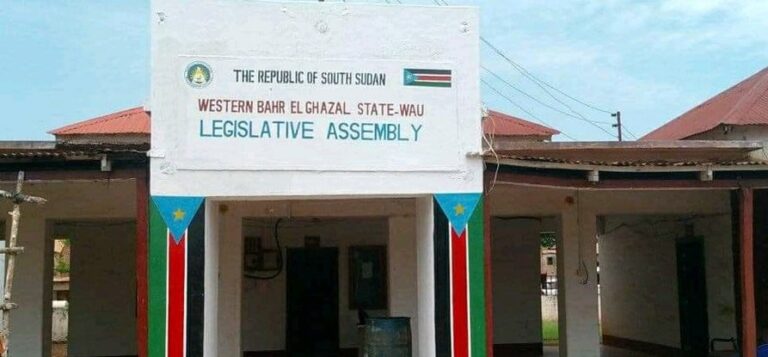At least 40 lawmakers in Western Bahr el-Ghazal State are bedridden without proper medical care due to the state government’s failure to pay their medical allowances since they took office in 2020, a legislative spokesperson said.
Joseph Mawut Athian, spokesperson for the Western Bahr el-Ghazal Transitional Legislative Assembly, told Radio Tamazuj the sick legislators lack even travel funds to seek treatment in Juba.
“We have about 40 MPs who are sick and without even the tickets for travel to Juba,” Athian said.
He accused executive members of using state funds for flights abroad—both for medical treatment and personal trips—while lawmakers struggle without basic resources.
“We are seeing some officials within the executive flying to Juba, Kenya and elsewhere, yet even our speaker has no car to travel to the Lokoloko neighborhood within Wau,” he said.
Athian said the assembly has repeatedly appealed to successive governors, from former Gov. Sarah Cleto to current Gov. Emmanuel Primo Okello, but received no response.
“The leadership of the State Legislative Assembly has written many documents concerning the recess and the medical allowances, but no response has been forthcoming,” he said.
Some legislators in Juba are reportedly selling personal assets to cover medical expenses, he added.
One lawmaker, Peter Andel, said he received no state support after breaking his leg in a recent road accident.
“Since the accident occurred outside the town, I was taken to Wau. I later went to Juba on my own,” Andel said.
His treatment cost $5,700, he said, and he stayed in the home of Kornelo Kon Ngu, a member of the National Transitional Legislative Assembly, for accommodation.
“I wrote a letter to the governor’s office, and up to now, there is no response,” Andel said.
Stephen Robo Musa, Western Bahr el-Ghazal coordinator for the Community Empowerment for Progress Organization (CEPO), called the situation “unfortunate.”
“Such discrimination is due to the weakness of the legislature in presenting the rights of civil servants,” Musa said. “The executive is taking advantage of being in control of the cash and prioritizing themselves over the legislators.”




